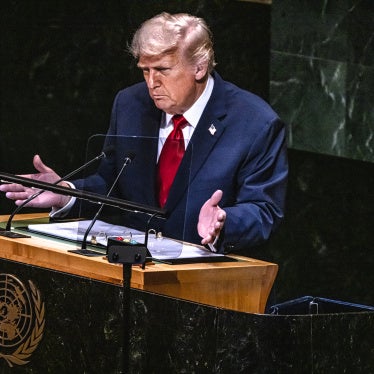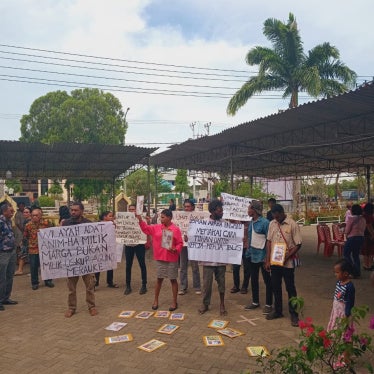The world's attention is focused on how to apply an effective inspections system to check on Saddam Hussein's programs for weapons of mass destruction. But this week the United Nations is debating another inspections regime of considerable significance, one designed to stamp out torture and other ill-treatment in prisons around the world.
The United States has fought the UN initiative tooth and nail, lining up with some of the most abusive governments in the world, including those of China, Iran, Cuba and Sudan, against a coalition of its closest allies and partners.
Since 1984, the UN Convention Against Torture has stood as an international prohibition of torture and other forms of cruel treatment. It has relied on the good faith of states to carry out its provisions, supervised by an overstretched group of experts who periodically review governments' performance. Now the UN is poised to adopt an international inspection mechanism that could visit prisons and make recommendations. After 10 years of negotiations, an optional protocol establishing this system will be voted on by the General Assembly.
By most estimates, torture remains widespread in at least 70 countries, and ill-treatment of prisoners can occur in even the best- run systems.
Many of the countries championing the new system are newly emerged democracies that have long, hard experience of the problem of torture. The protocol has support from a wide array of states including South Africa, Mexico, Bahrain and Indonesia.
For governments trying to overhaul prison systems, often against resistance from recalcitrant military and security forces, the inspection regime promises a useful form of pressure and a source of international assistance.
The United States has sought to derail this initiative at every stage in the process. Problems related to incompatibility with America's federal system have been largely resolved in negotiations on the text. Now the Bush administration is objecting to the possible cost of the proposed inspection regime.
But best estimates, drawn from experience with a similar system in Europe, indicate that the mechanism could be fully operational for under $2 million per year. Governments put five times this amount into UN programs for the rehabilitation of torture victims, not to mention the money raised by private charities worldwide.
U.S. officials have argued that the inspection system should be paid for by those who decide to join it. But a funding formula of this kind would discourage poorer states most in need of help from joining the inspection system.
The torture inspection system is optional. The United States can choose to join it by ratifying the protocol or not. U.S. prisons would be subject to inspections only if it chose to do so.
Washington's resistance will probably be futile. A U.S. attempt to reopen negotiations in July was voted down, and the torture protocol is likely to be adopted by a large majority.
America has nothing to gain by trying to undermine this important human rights initiative and positioning itself alongside some of the world's worst violators. It should drop its opposition to the torture protocol and, even if unwilling to join, let other nations carry on the fight against torture.






